Full Archive
A complete archive of every post, unsorted.
Rather than suffer through a discussion on the META in games, Chris convinces Steve to instead discuss Outriders, The Messenger, and various other digressions.
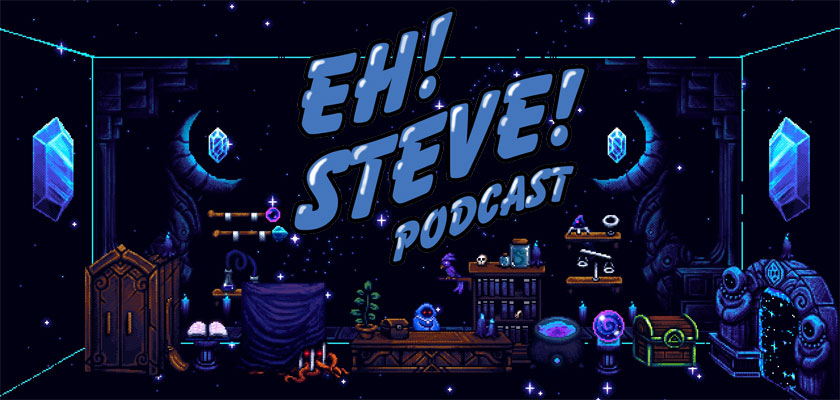
WandaVision was pretty decent! But did it stick the landing? Find out as Chris and Steve break their thoughts down for you.
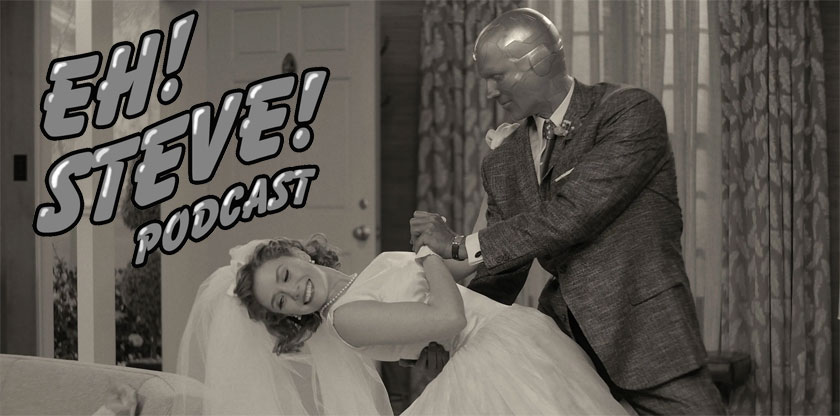
No matter the hobby, I cannot help but sit, ponder, and spend way too much time thinking about how to improve myself at it.
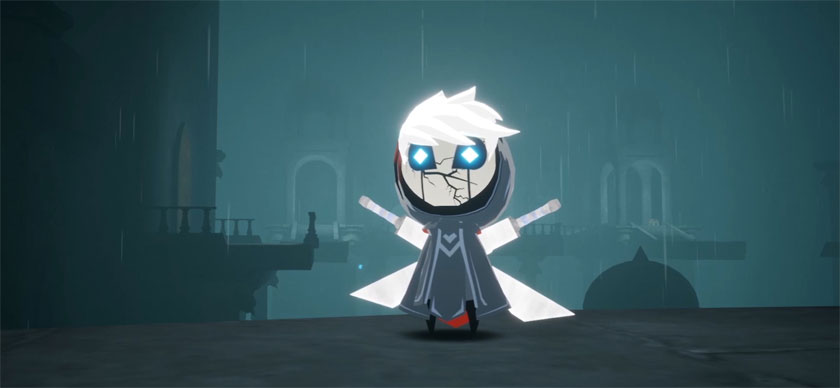
I learned a valuable lesson during this Monday’s stream: don’t try to discuss overly serious stuff while broadcasting.
Nothing personal, mind. I at least have enough sense not to discuss such matters as my family or overly detailed updates on my medical conditions. Nonetheless, self-consciously reflecting on doubts regarding one’s value as an entertainer is, well, not entertaining. Even if there were a worthwhile conversation to be had regarding what it takes or means to be entertaining while playing a game, it is unlikely to come about while driven not by a crisis of confidence instead of intellectual curiosity. In addition to the attempt to carry a discussion with oneself live on stream, the required concentration and constant interruptions of playing a game at the same time are bound to result in one awkward stream. The end result is a video-on-demand that you’re eager to see expire and vanish in the abyss of Twitch’s hungry maw.
Which is why I now transfer such thoughts to the blog, where I can more effectively focus my thoughts and how they are expressed. This is not, after all, the only thing I’ve pondered about myself while streaming. It is only the latest in a long line of observations and questions I’ve made of myself in this recent endeavor. The tone at which I speak, the manner in which I address friends and viewers, how I discuss the game I’m playing and its design elements; these are all factors I’ve pondered lately in terms of what makes an engaging, quality stream.
Curiously enough, it does not begin with Twitch itself, but the closing of my Facebook account.
Games! A Marvel TV Show! Lots to discuss as Chris and Steve greatly detail their thoughts on Resident Evil VII, WandaVision, Touhou Luna Nights, Immortals: Fenyx Rising, and more!
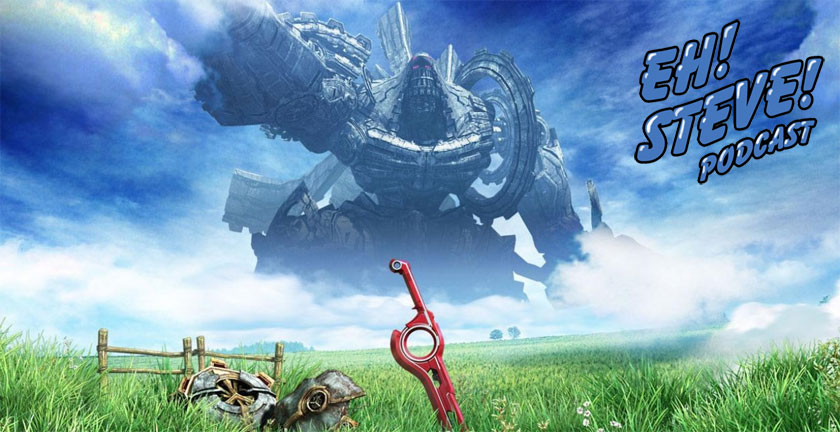
For a psychological horror, The Medium can't withstand much intellectual scrutiny.
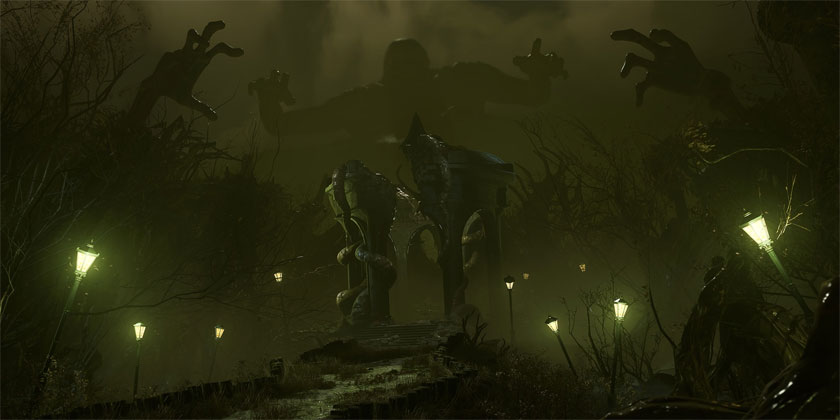
I can’t remember the last time I played a video game whose ending burned up any good will I had for it. There are plenty of games for which their endings left me either apathetic or dissatisfied, but rarely has a game concluded in a manner that just upset me to the extent that The Medium had.
Perhaps if there were more to the actual experience of playing it, I’d have been more forgiving. I don’t mean that as a dig towards its lack of combat mechanics or anything, either. This is a psychological horror game that is clearly inspired by the earlier entries of the Silent Hill franchise. Clumsy combat mechanics were never their strong suit, so it makes sense for an independently developed spiritual successor to cut out what the franchise did poorly in order to focus on its strengths. With Silent Hill, those strengths are the narrative, atmosphere, characters, and puzzles.
Unfortunately, The Medium failed to measure up to just about any of those categories for me. I’m tempted to at least claim it was an “interesting” game, but this would either imply I’m trying to kindly call it “bad” – which it really isn’t – or that any deeper contemplation would do anything more than further confound. The game’s conclusion could have saved its otherwise forgettable nature had it ended on a strong note. Instead, The Medium became my very definition of a “Game Pass game”.
Keep in mind that I believe games ought to be replayed, and I fear that services like Game Pass turn them into disposable pieces of basic consumption. No rumination, no consideration, no savoring of the experience and really contemplating the developer’s intent. Just consume and move onto the next product in line. So to claim The Medium is the very definition of a “Game Pass game” means that it feels like a game that you consume once and then forget about.
I might have come away feeling differently if it only had a better ending.
Steve is aggressively disappointed by how unenthused Chris is by the accomplishments of CD Projekt Red's The Witcher 3.
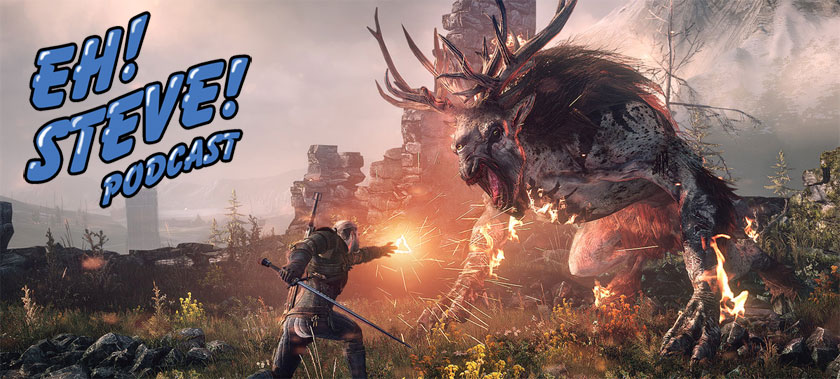
The most boring thing a Souls-like can do is be exactly like Dark Souls.

Last year I pompously declared Bloodborne an action-horror, abandoning the silly trend of defining a game’s genre by a very rigid set of mechanics. Today, I’m going to be a hypocrite and stick to the term “Souls-like” for both the sake of convenience, as well as to make a point regarding the rigid nature by which these genres are treated.
I’ve been playing Salt & Sanctuary of late. Streaming it, even. However, I’ve found that the frustration it fills me with makes for cranky commentary. I’ve continued to play it, but I’d rather my stream time be more pleasant and less griping and growling.
While the game may “prepare” me to better understand Dark Souls itself – much as Darksiders 3 helped better prepare me to enjoy and comprehend Bloodborne – it has also helped me appreciate the creativity of Gunfire Games and even From Software as they explored beyond the base mechanics of the progenitor game. Mechanically speaking, Salt & Sanctuary is Dark Souls (or Demon’s Souls) re-imagined as a side-scroller and little more. The greatest deviation is that there’s no “Humanity” component.
What a wasted opportunity.
The Witcher 3 was almost the best Dad game since season one of Telltale's The Walking Dead.
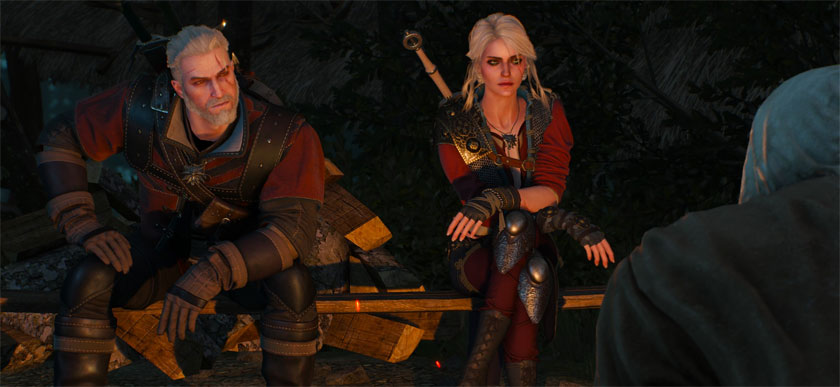
It’s been almost eight years since I wrote The Walking Dad, my first essay for website GamersWithJobs and basis for my video analysis of Telltale’s The Walking Dead: Season One. I opened that essay with an illustration from my life, where I, as a full-grown adult, felt completely unprepared and out of my element. This moment of fear and embarrassment spoke to the thesis of Telltale’s first mainstream success: that protecting one’s child from adulthood will fail to prepare them for adulthood.
Without going into too much detail, the game’s conclusion was left perfectly ambiguous so as not to take away from the player’s choices throughout. They don’t “matter” in that the ending is the ending regardless of your decisions made throughout each episode. However, the player will be able to call back to earlier choices and conversations as the music swells during a highly emotional moment, only to leave the player wondering at the end if they had done enough. It was pitch perfect.
The Witcher 3 had, for a time, felt like the next best execution of this idea. Many of its dialogue choices seemed to ask me to consider Ciri’s personality rather than what was the canonically “correct” choice. I did my best to listen to Ciri and read her body language rather than go with my own instinct. Even if I believed one choice was “correct” in a pragmatic or ethical sense, I might have chosen a different one for the sake of Ciri’s emotions.
In the end, however, the nuance is lost as the game’s three endings suggest there was always a “correct” choice. This sort of reduction of meaning comes across as more insulting than the simplistic binary morality presented in BioShock 2. At least that game was obvious about its complete lack of sophistication towards “good” and “bad”. Even if The Witcher 3 does not profess to believe in a “right” or “wrong” resolution, one of these endings is far more sweet and uplifting than the other two. Even though the narrative up to this point were to suggest there is no “good” or “bad” in this universe, the mood and tone of each ending suggests a good – and therefore “correct” – ending, a bittersweet sort-of-good-but-not-really ending, and a blatantly bad ending.
The rest of this essay will be going into detail regarding the game’s narrative and conclusions, so reader beware if you’ve yet to play and complete the game yourself.
A two hour discussion going into great detail the events of The Mandalorian season two? This is the way.
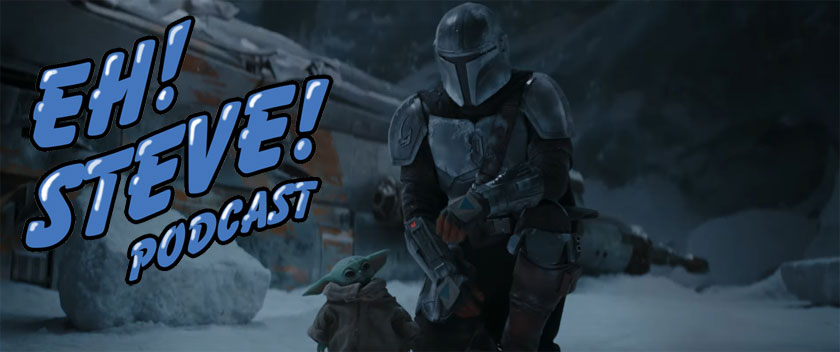
A lot of words are dedicated to the irritation found in the repetition of just a few words.
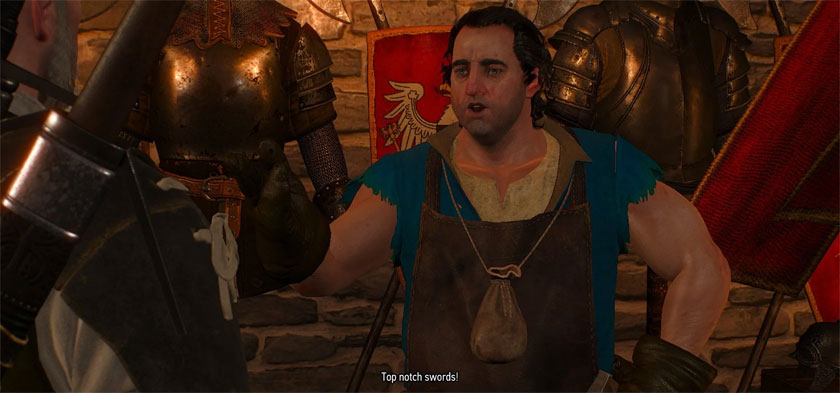
The sheer volume of unique dialogue and voiced lines in The Witcher 3 is amazing. It may be old news to many of you by now, but I’ve only been making my way through the game for the past month. I’ve played a number of huge, open-world games over the past decade, but it’s pretty obvious how much effort went into making CD Projekt’s fantasy opus feel like a lived-in realm.
I’ve come to recognize different blacksmiths in different towns based on their greeting of me. “Top notch swords!” comments the armorer in Novigrad, admiring the work of the two blades strapped across Geralt’s back. He’s a bit huskier compared to the others. The smith in Oxenfurt is always pleased to see the White Wolf stroll into his abode, preparing to commission a far more interesting work order than the rote, copy-paste desires of the invading Nilfgaardian army. The armorer in Midcopse smugly tries to sell me a crossbow of supposedly high-quality, despite dealing strictly in defensive garments as opposed to hostile armaments.
That I can recall my interactions with each of these professionals of The Witcher 3 is indicative of the attention to detail placed into this world. Rather than giving each armorer or smithy a generic greeting with the exact same voice, they are each separate character models with different voice actors speaking different lines. Such a small detail contributes greatly to the depth that inhabits every corner of The Witcher 3.
I wish they’d just shut up and take me right into the shop screen already.
Months, or perhaps even a few years, of struggling to enjoy writing again has led me to contemplate what is getting in my own way.
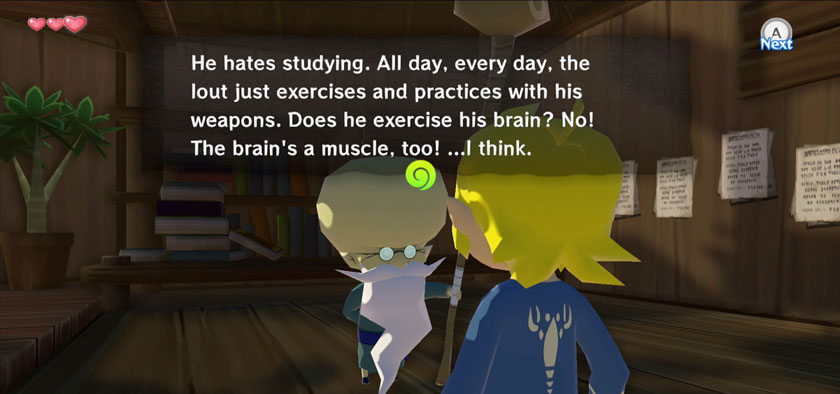
I suffer the bad habit of introspection and over-thinking. Simply asking “what is a blog for?” releases a mental floodgate consisting of philosophical statements and further questions. The end result is a river with endless forks and paths of consideration rather than a solid answer. Soon enough, I’ve spent so much time contemplating this simple statement that I’ve lost track of the original purpose of the question. Or, worse, I start to ponder if there may be some other innate question, left silent and buried, that I’m actually striving to answer and perhaps fearing the answer to.
It’s a real pain in the butt, a bad habit far more problematic than that of biting one’s own nails.
What I mean to ask is not necessarily what the concept of a blog is for, but specifically what my blog is for in the wake of my other methods of creative output. Or rather, supposed creative output. These days the only thing I seem adept at creating are podcasts and Twitch streams.
The real storm within my mind is that of writing. Be it a script or an essay for the website, I’ve felt little motivation or inspiration to sit down and jot words onto a blank document. I’ve mentioned in the past that I have a figurative pile of drafts stored on my drive, words that have never seen the eyes of another. I desperately wish to write, but I’ve never been happy with anything that I’ve produced.
I mentioned that bad habit of introspection and over-thinking. The truth is, this introspection did not begin with wondering what my blog was for. It began with wondering why I was struggling to enjoy writing again. I think, finally, I’ve got something of an answer, but only after evaluating the past several years of my efforts to blog and create video essays while working a full-time job.
Chris and Steve try to take a look back at what they played in 2020. Instead, they digress. A lot.
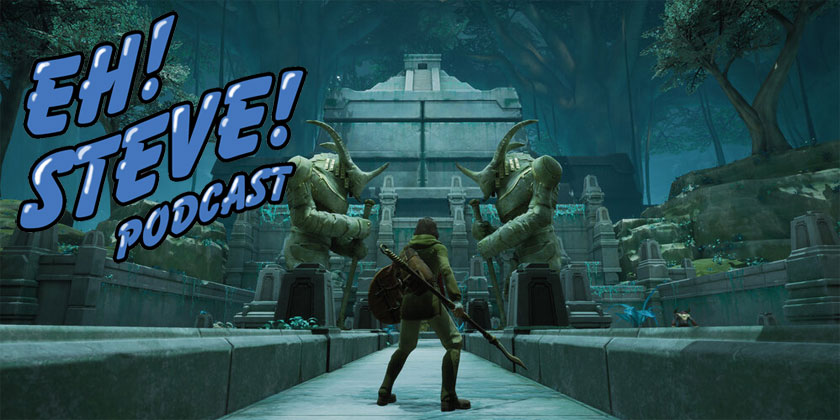
It's time to choose a color to let fly as Chris and Steve finally get around to their Persona 5 Royal discussion.

It's been over a month since the last discussion, and in that time Chris and Steve have been playing games like Persona 5 Royal, Yakuza: Like a Dragon, Marvel's Avengers, and more!
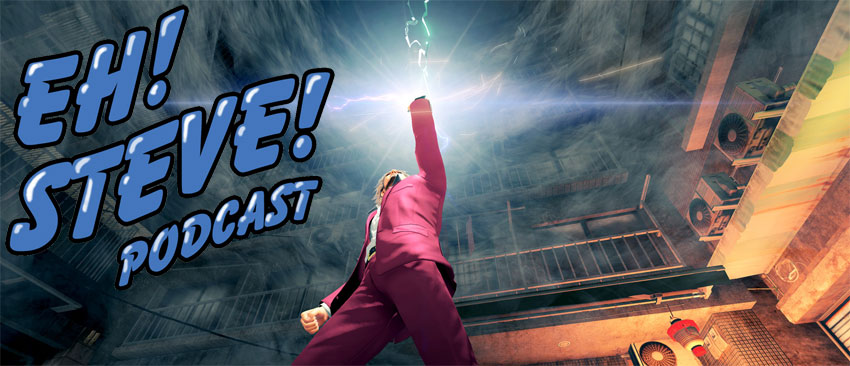
The remaining games this year that I've dabbled in, but either didn't complete or did not have enough to say to justify a dedicated blog post.
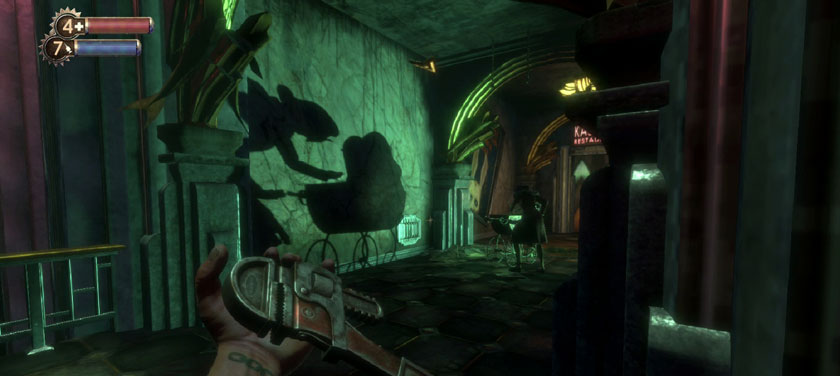
BIOSHOCK
I’ve been thinking about making a video for Bioshock: Infinite ever since my first completion in 2013. When the trilogy collection released on Switch I figured it’d be a good opportunity to replay the whole series, catching myself up on the franchise and determining whether I ought to tackle each game in a separate video. Unfortunately, this plan swiftly fell through once I discovered how poorly the combat of Bioshock had aged.
Some of its flaws have already been addressed in the sequels, such as tying plasmid powers and weaponry to separate triggers on the controller rather than restricting the player to using just one or the other. Others, however, persist even in the sequels. The constant spawning and wandering of Rapture’s citizens comes to mind, interrupting efforts to explore every nook of the city or to take in the most minute of details within the scenery. The first two titles of the franchise possess this problem, emphasized in the second as a randomly generated Splicer would walk into a room filled with my carefully laid traps just before I began an ADAM harvest.
In the context of the first game, these interruptions and other scripted encounters kept pulling the game’s focus from exploration. The level design was more open, lending itself to a slightly more linear Metroidvania or survival horror approach. Exploration rewarded the player with weaponry and Plasmid powers, some of which were optional. Voice recordings provided additional clues as to Rapture’s downfall, each from a different perspective, lifestyle, and philosophy. These are the areas where Bioshock excels, and yet at every corner it feels as if the game sought to interrupt these activities with its far weaker combat.
It is likely a result of the era in which it was released, which goes to show how far my own gaming tastes have changed approximately fifteen years later. I had played through Bioshock multiple times and even completed it on the hardest, patched in difficulty. Now, however, I cannot help but wonder if the game ought to be remade with its narrative intact, but a greater focus on exploration than on the combat. Or, perhaps, it is my preference for the Metroidvania genre leaking out.


